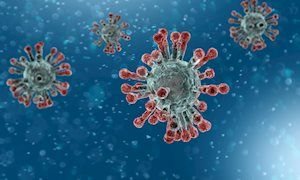
Urban Tanzanians have a more activated immune system compared to their rural counterparts. The difference in diet appears to explain this difference: in the cities, people eat a more western style diet, while in rural areas a traditional diet is more common. A team of researchers from Radboud university medical center in the Netherlands, the LIMES Institute at the University of Bonn in Germany and the Kilimanjaro Clinic Research Center in Tanzania believe that this increased activity of the immune system contributes to the rapid increase in non-communicable diseases in urban areas in Africa.
The survey was conducted among more than 300 Tanzanians, some of whom live in the city of Moshi and some in the countryside. The team found that immune cells from participants from Moshi produced more inflammatory proteins. The people surveyed had no health problems and were not ill, but an activated immune system may increase the risk for lifestyle diseases, such as cardiovascular disease.
The researchers used new techniques to investigate the function of the immune system and the factors that influence its activity. Quirijn de Mast, internist-infectious diseases specialist at Radboudumc explains: “We looked at active RNA molecules in the blood – known as the transcriptome - and the composition of metabolic products in the blood.”
Major differences in diet
These analyses showed that metabolites derived from food had an effect on the immune system. Participants from rural areas had higher levels of flavonoids and other anti-inflammatory substances in their blood. The traditional rural Tanzanian diet, which is rich in whole grains, fibre, fruits and vegetables, contains high amounts of these substances. In people with an urban diet, which contains more saturated fats and processed foods, increased levels of metabolites that are involved in cholesterol metabolism were found. The team also found a seasonal change in the activity of the immune system. In the dry season, which is the time of harvest in the study area, the urban people had a less activated immune system.
Migration to the cities of Africa
It has been known for some time that a Western lifestyle and eating habits lead to chronic diseases. According to de Mast, two important findings have emerged from this study. “First of all, we showed that a traditional Tanzanian diet has a beneficial effect on inflammation and the functioning of the immune system. This is important because rapid urbanization is ongoing, not only in Tanzania, but also in other parts of Africa. The migration from the countryside to the city is leading to dietary changes and is accompanied by a rapid increase in the number of lifestyle diseases, which puts a heavy burden on the local healthcare systems. That is why prevention is essential, and diet can be very important for this.”
Western countries can learn from the results
Second, these findings from Africa are also relevant for Western countries. Urbanization took place a long time ago in most western countries. By studying populations at different stages of urbanization, researchers therefore have unique opportunities to improve their understanding of how diet and lifestyle affect the human immune system.
TransMic: Consequences of a Westernized diet
This research, co-funded by JPI-HDHL and Dutch grantor ZonMw, is part of the TransMic study, an international project on the ‘Westernization' of diet and its health consequences. In this project, researchers from Radboud university medical center and the LIMES Institute in Bonn are working together with colleagues from universities in Italy, Tanzania and Burkina Faso to study the effects of diet on the immune system in populations at different stages of demographic transition and urbanization.
About the publication
Publication in Nature Immunology: Urban living in healthy Tanzanians is associated with an inflammatory status driven by dietary and metabolic changes – Godfrey S. Temba, Vesla Kullaya, Tal Pecht, Blandina T. Mmbaga, Anna C. Aschenbrenner, Thomas Ulas, Gibson Kibiki, Furaha Lyamuya, Collins K. Boahen, Vinod Kumar, Leo A.B. Joosten, Joachim L. Schultze, Andre J. van der Ven, Mihai G. Netea, Quirijn de Mast.
Related news items

Antibodies are sustained in nasal fluid after mild corona infection
27 September 2021 Testing through nasal fluids is easier than through blood go to page
Trained immunity: a tool for reducing susceptibility to and the severity of SARS-CoV-2 infection
17 February 2021 In a review in Cell Mihai Netea, Frank van de Veerdonk, Reinout van Crevel and Jorge Dominguez Andres propose that induction of trained immunity by whole-microorganism vaccines may represent an important tool for reducing susceptibility to and severity of SARS-CoV-2. go to page
ZonMw grants to study optimal use of COVID-19 vaccines in patients with impaired immune systems
3 February 2021 How do people with reduced immunity, especially kidney patients, react to a COVID-19 vaccination? And how can patients with peripheral arterial disease be helped by DNA testing? Our researchers received grants from ZonMw to make these studies possible. go to page
New malaria mosquito is emerging in African cities
27 January 2021 A new urban mosquito is widespread in the Horn of Africa and is highly susceptible to local malaria parasites: a publication in Emerging Infectious Diseases. go to page
